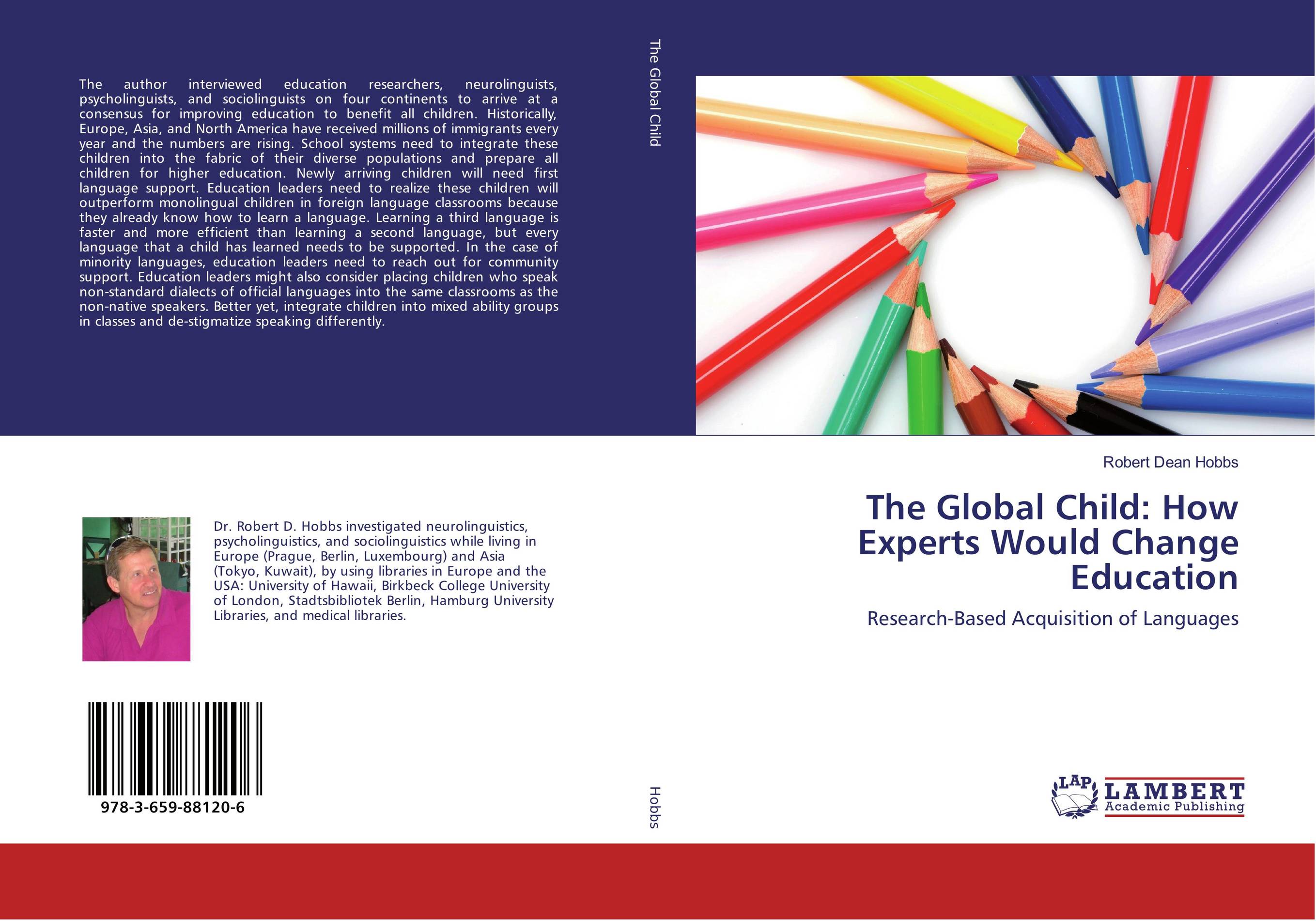| Поиск по каталогу |
|
(строгое соответствие)
|
- Профессиональная
- Научно-популярная
- Художественная
- Публицистика
- Детская
- Искусство
- Хобби, семья, дом
- Спорт
- Путеводители
- Блокноты, тетради, открытки
The Global Child: How Experts Would Change Education. Research-Based Acquisition of Languages

В наличии
| Местонахождение: Алматы | Состояние экземпляра: новый |

Бумажная
версия
версия
Автор: Robert Dean Hobbs
ISBN: 9783659881206
Год издания: 2016
Формат книги: 60×90/16 (145×215 мм)
Количество страниц: 316
Издательство: LAP LAMBERT Academic Publishing
Цена: 55533 тг
Положить в корзину
| Способы доставки в город Алматы * комплектация (срок до отгрузки) не более 2 рабочих дней |
| Самовывоз из города Алматы (пункты самовывоза партнёра CDEK) |
| Курьерская доставка CDEK из города Москва |
| Доставка Почтой России из города Москва |
Аннотация: The author interviewed education researchers, neurolinguists, psycholinguists, and sociolinguists on four continents to arrive at a consensus for improving education to benefit all children. Historically, Europe, Asia, and North America have received millions of immigrants every year and the numbers are rising. School systems need to integrate these children into the fabric of their diverse populations and prepare all children for higher education. Newly arriving children will need first language support. Education leaders need to realize these children will outperform monolingual children in foreign language classrooms because they already know how to learn a language. Learning a third language is faster and more efficient than learning a second language, but every language that a child has learned needs to be supported. In the case of minority languages, education leaders need to reach out for community support. Education leaders might also consider placing children who speak non-standard dialects of official languages into the same classrooms as the non-native speakers. Better yet, integrate children into mixed ability groups in classes and de-stigmatize speaking differently.
Ключевые слова: curriculum, education, Multilingualism, psycholinguistics, Social Sciences, Sociolinguistics, human development, policy, psychology, Teacher Education



